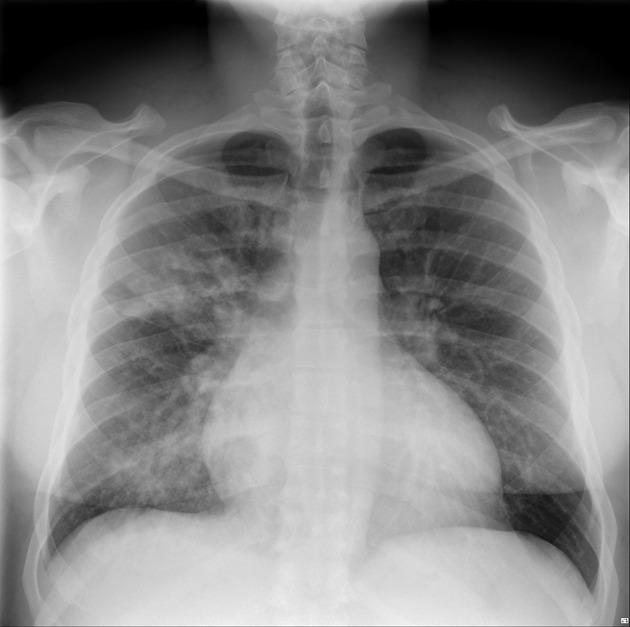What is bronchial pneumonia?
Bronchial pneumonia, also called bronchopneumonia, multifocal or lobular pneumonia, is an acute inflammation of the small airways within the lungs (bronchioles) and the surrounding air sacs (alveoli).
Causes
Bronchopneumonia is usually caused by bacteria, such as Staphylococcus aureus, Klebsiella pneumoniae, Haemophilus influenzae, Pseudomonas aeruginosa or Escherichia coli [1]. It usually occurs in patients in hospitals (hospital-acquired and ventilator-associated pneumonia) [1] after aspiration of vomit and in intravenous drug abusers.
Bronchopneumonia can be also caused by the atypical bacterium Mycoplasma, viruses and fungi [3,4].
Is bronchial pneumonia contagious?
Bronchopneumonia by itself is not contagious, which means if you are in close contact with someone who has bronchopneumonia it is not very likely you will also get it. Microbes that cause bronchopneumonia can be contagious, though and if you contract them by inhalation after an infected person has coughed or sneezed them out, you may get infected and develop some mild disease, but less likely bronchopneumonia.
Bronchopneumonia is usually caused by microbes that most healthy people have in their mouths and throats. We regularly inhale these microbes into our lungs, but if our immune systems are healthy, the microbes will not cause any disease [2]. In individuals with weak immunity, underlying lung or heart disease, these microbes can cause bronchopneumonia [2]. With other words, bronchopneumonia is usually “contracted” by autoinfection.
Risk factors for bronchopneumonia are young age (infants), old age (>65), smoking, being bedridden and underlying diseases, such as flu, measles, cystic fibrosis and chronic bronchitis [2].
Symptoms
Symptoms can include coughing up mucus (which may contain blood), shortness of breath, fever and fatigue [1].
Diagnosis
- Blood culture and sputum culture can reveal the causing microbe.
- X-ray shows multiple small patches, usually in both lungs, as opposed to lobar pneumonia, which usually affects only one lobe of one lung [1].
Picture 1. Bronchopneumonia – An X-ray showing
scattered white patches along the bronchi in both lungs
(source: Radiopedia, CC license)
Treatment
Treatment of bronchopneumonia includes antibiotics and other measures like in other types of pneumonia.
Prognosis
Bronchopneumonia can be mild or severe. Prognosis mainly depends on the severity of the underlying disease.
- References
- Hacking C et al, Bronchopneumonia Radiopedia
- Roy S, Pathology of bronchopneumonia Histopathology-India.net
- Franquet T et al, 2011, Imaging of Pulmonary Viral Pneumonia Radiology Society of North America
- Guo W et al, 2012, Radiological findings in 210 paediatric patients with viral pneumonia: a retrospective case study PubMed Central



Need more about this diseases
You can search online. They are also books of Internal Medicine available in libraries.